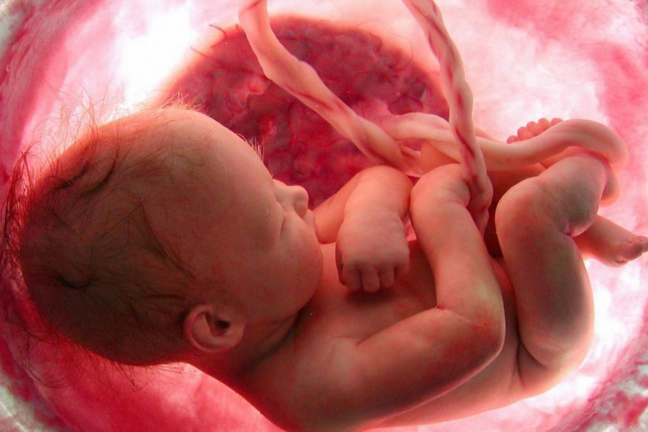The Texas abortion ban is working and a new report from the Texas health department shows just 17 abortions so far in 2023 as the state’s pro-life law has saved tens of thousands of babies from abortions.
Texas Health and Human Services Commission recorded only 17 legal abortions in the first four months of 2023, according to a new report by the agency. All the abortions that took place were needed to save the life of the mother or because of medical emergencies.
Some abortion advocates expressed shock at the numbers, but they clearly don’t undrestand that abortion is essentially never medically necessary.
One of the most common defenses of late-term abortion is the claim that in some cases, abortion is medically necessary. Lately, Americans have been hearing this claim in defense of a law in New York that allows abortions through all nine months of pregnancy. But that claim is based on faulty assumptions about the options available to women who face life-threatening pregnancy complications. The truth, known to thousands of OB-GYNs worldwide, is that there is no situation in which an abortion is medically necessary.
Over a thousand OB-GYNs and maternal healthcare experts joined together to affirm this reality in the Dublin Declaration, which states: “As experienced practitioners and researchers in obstetrics and gynecology, we affirm that direct abortion – the purposeful destruction of the unborn child — is not medically necessary to save the life of a woman. We uphold that there is a fundamental difference between abortion, and necessary medical treatments that are carried out to save the life of the mother, even if such treatment results in the loss of life of her unborn child. We confirm that the prohibition of abortion does not affect, in any way, the availability of optimal care to pregnant women.”
Nearly 10,000 babies have been born in Texas as a result of its heartbeat law, a new study by Johns Hopkins researchers suggested earlier this summer.
The results of the study, published in the medical journal JAMA, add to growing evidence that pro-life laws are saving tens of thousands of lives. Researchers said Texas saw 9,799 more births between April and December 2022 after the law went into effect.
In September 2021, Texas became the first state since 1973 that the courts allowed to enforce a pre-viability abortion ban. So, for about 10 months prior to the overturning of Roe v. Wade, the state enforced its heartbeat law, which bans elective abortions once an unborn baby’s heartbeat is detectable, about six weeks of pregnancy.
During that time period, the study from Johns Hopkins Bloomberg School of Public Health suggests at least 9,799 unborn babies were saved from abortion and later were born in 2022.
Researchers said they used monthly live birth data from all 50 states to come up with the number. According to Johns Hopkins, “The researchers calculated that there would have been 287,289 live births in Texas from April to December 2022 had the abortion ban not gone into effect in September 2021. The number of observed births during this period was 297,088, a difference of 9,799.”
Click here to sign up for pro-life news alerts from LifeNews.com
In other words, the research suggests the Texas law saved about 1,225 babies from abortion every month. Six more months have passed since December, meaning approximately 7,350 more babies likely also have been spared from violent abortion deaths.
These are unique, valuable children who will have the opportunity to grow and thrive, experience joy, develop relationships and contribute to society.
However, researchers at Johns Hopkins portrayed their findings in a negative light, referring to pregnant women as “birthing people” and claiming pro-life laws cause harm.
“… abortion bans have real implications for birthing people, thousands of whom may have had no choice but to continue an unwanted or unsafe pregnancy to term,” said Suzanne Bell, PhD, MPH, an assistant professor at Bloomberg and another lead author of the study.
Bell said most women seeking abortions are struggling financially, so many of the mothers who gave birth in 2022 likely also are struggling.
But killing unborn babies in abortions is not a solution to poverty. Most pregnant mothers want better support, not abortions, and pro-life advocates have been working hard to increase resources to help families, including through government aid, tax credits, pregnancy resource centers, maternity homes, scholarships, baby showers, fundraisers and more.
Last year, when the Washington Post highlighted the struggles of a young Texas mother and her baby girls after the heartbeat law prevented her from having an abortion, pro-life actress Patricia Heaton and other pro-life leaders highlighted a fundraiser for the family, raising $50,000 in 24 hours.
Today in Texas, unborn babies are protected from abortion at all stages of pregnancy. After the U.S. Supreme Court overturned Roe in June 2022, the state began enforcing a second pro-life law that bans all elective abortions. Now, 14 other states also are enforcing laws that ban or strictly limit elective abortions, and more are fighting in court to do the same.
While some women are traveling to other states for abortions and others are buying abortion drugs online, a number of studies indicate that pro-life laws are preventing abortions and saving lives. One report from the Society of Family Planning found that abortions dropped by about 24,000 nationwide from July 2022 to March 2023.
Michael J. New, an assistant professor at the Busch School of Business at The Catholic University of America and an associate scholar at the Charlotte Lozier Institute, said the Texas birth data is “very powerful evidence” that state abortion bans are saving lives.
He conducted research earlier this year that came to very similar findings to those in the Johns Hopkins study.
“In my Charlotte Lozier Institute analysis, from November 2022, of Texas birth data, I found that the Heartbeat Act was preventing approximately 1,000 abortions from taking place in Texas every month,” New wrote earlier this week in a column published at LifeNews. “Also, new data from the CDC show that in 2022 the Texas birthrate increased by 4.7 percent — the largest percentage increase in the country.”








